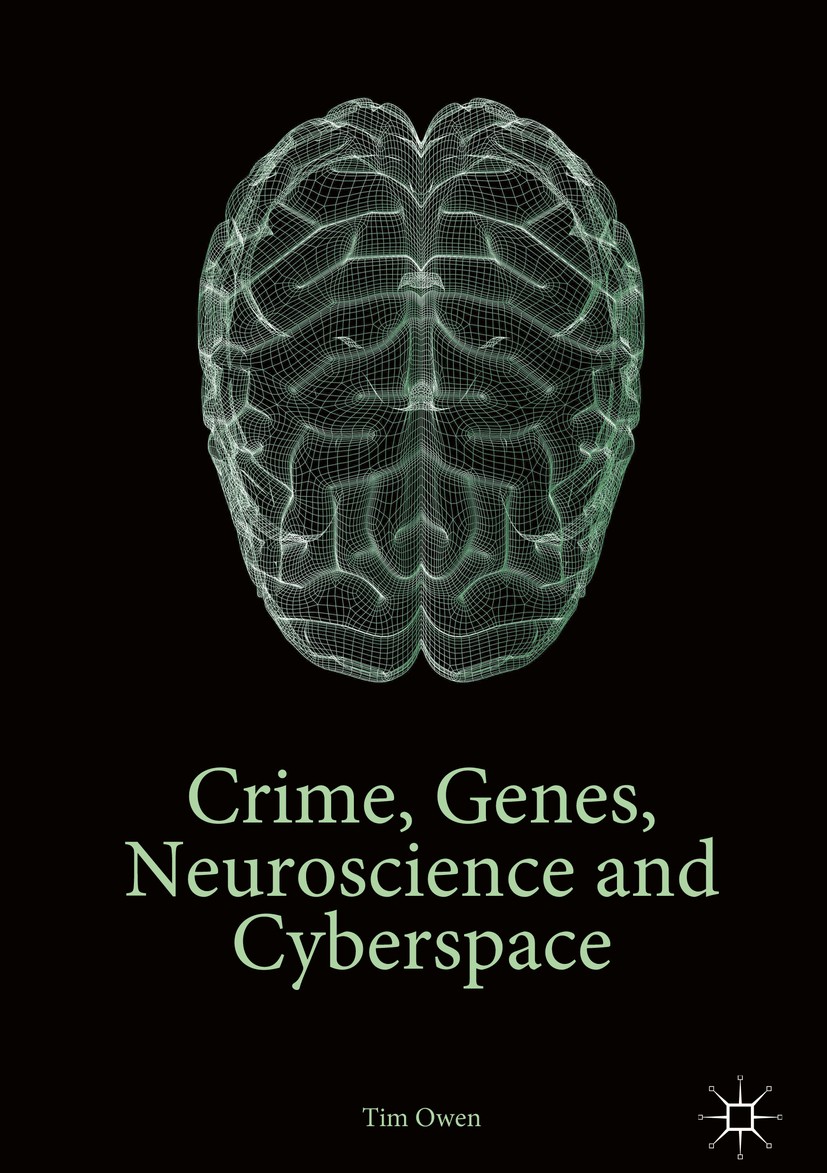| 書目名稱 | Crime, Genes, Neuroscience and Cyberspace | | 編輯 | Tim Owen | | 視頻video | http://file.papertrans.cn/240/239740/239740.mp4 | | 概述 | Applies insights from neuroscience to criminal behaviour, and explores the implications for contemporary criminological theory.Builds meaningful bridges between biology and sociological criminology, b | | 圖書封面 |  | | 描述 | This book applies Owen’s unique genetic-social framework to the study of crime and criminal behaviour, with an emphasis on cybercrime. Moving beyond challenges which confront contemporary criminological theorizing such as: the stagnation of critical criminology, the relativistic nihilism of the ‘cultural turn’, posthumanism, and virtual criminology, the author codifies and ‘a(chǎn)pplies’ the latest version of the framework to the study of crime, both in and out of cyberspace.?.Drawing upon evolutionary psychology, behavioural genetics and the philosophy of Heidegger, he introduces new terms such as ‘Neuro-Agency’ and notions of Embodied Cognition into criminological theorizing. Adopting a soft compatibilist approach to free-will, and Realist ontology, Owen’s meta-theoretical focus provides a new direction for criminological theorizing, in particular in the direction of the conceptualization and prediction of cyber violence. Exciting and timely, this book willappeal to scholars and advanced students of criminology, law, sociology, social policy, psychology, philosophy, policing and forensic investigation.. | | 出版日期 | Book 2017 | | 關(guān)鍵詞 | Cybercrime; Social Theory; Virtual Criminology; Cyber Violence; Codification; Genetic-Social Framework; ev | | 版次 | 1 | | doi | https://doi.org/10.1057/978-1-137-52688-5 | | isbn_ebook | 978-1-137-52688-5 | | copyright | The Editor(s) (if applicable) and The Author(s) 2017 |
The information of publication is updating

書目名稱Crime, Genes, Neuroscience and Cyberspace影響因子(影響力)

書目名稱Crime, Genes, Neuroscience and Cyberspace影響因子(影響力)學(xué)科排名

書目名稱Crime, Genes, Neuroscience and Cyberspace網(wǎng)絡(luò)公開度

書目名稱Crime, Genes, Neuroscience and Cyberspace網(wǎng)絡(luò)公開度學(xué)科排名

書目名稱Crime, Genes, Neuroscience and Cyberspace被引頻次

書目名稱Crime, Genes, Neuroscience and Cyberspace被引頻次學(xué)科排名

書目名稱Crime, Genes, Neuroscience and Cyberspace年度引用

書目名稱Crime, Genes, Neuroscience and Cyberspace年度引用學(xué)科排名

書目名稱Crime, Genes, Neuroscience and Cyberspace讀者反饋

書目名稱Crime, Genes, Neuroscience and Cyberspace讀者反饋學(xué)科排名

|
|
|
 |Archiver|手機(jī)版|小黑屋|
派博傳思國際
( 京公網(wǎng)安備110108008328)
GMT+8, 2025-10-10 01:25
|Archiver|手機(jī)版|小黑屋|
派博傳思國際
( 京公網(wǎng)安備110108008328)
GMT+8, 2025-10-10 01:25


